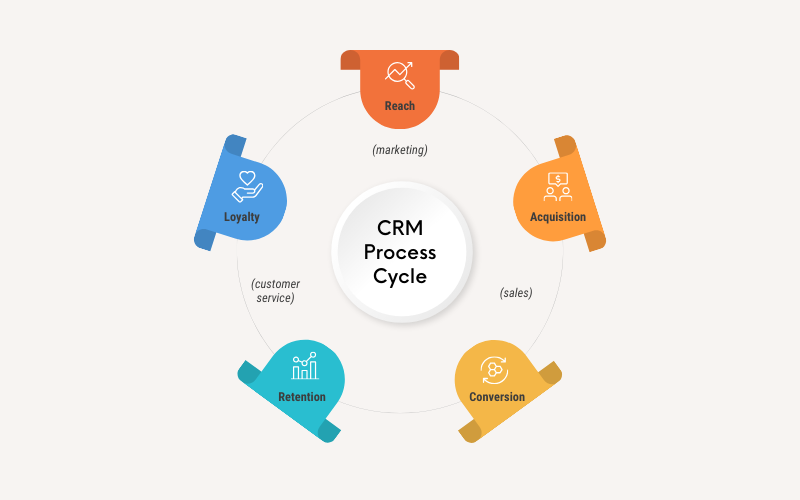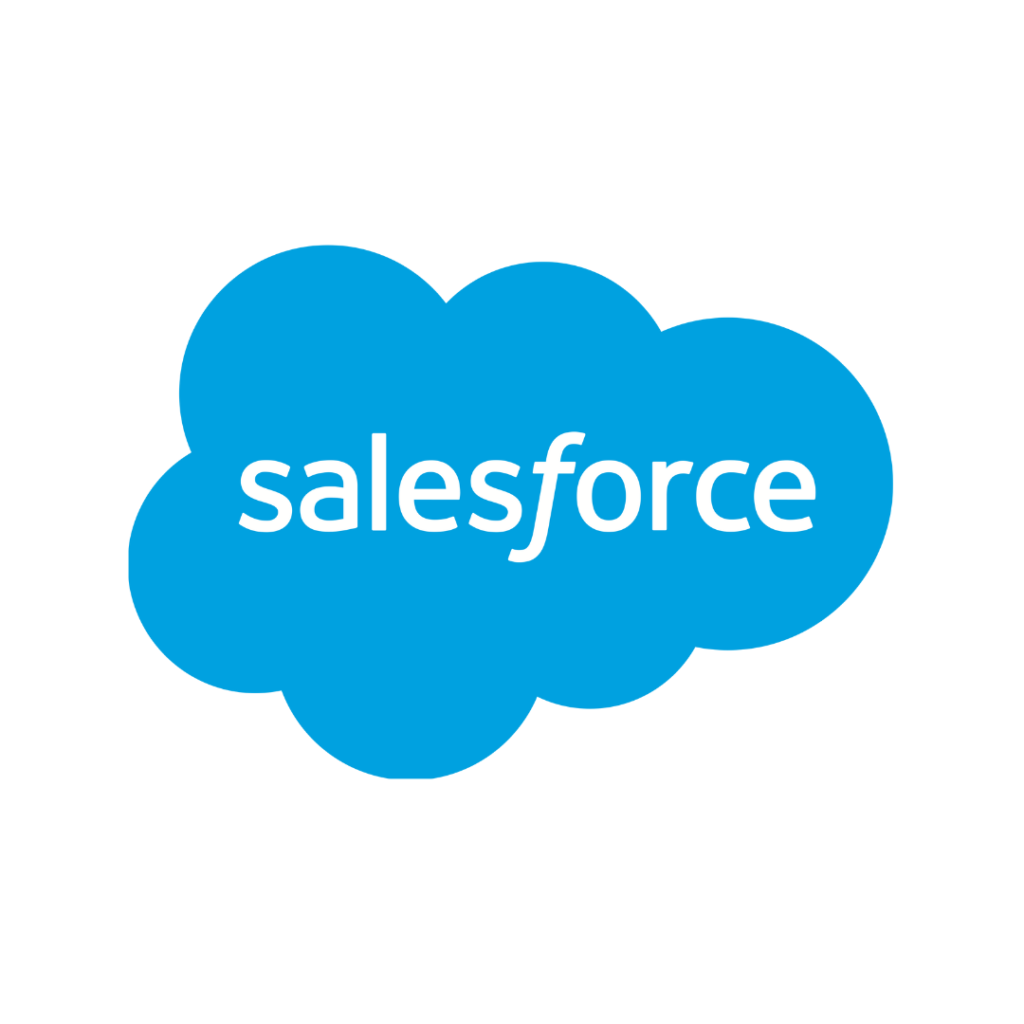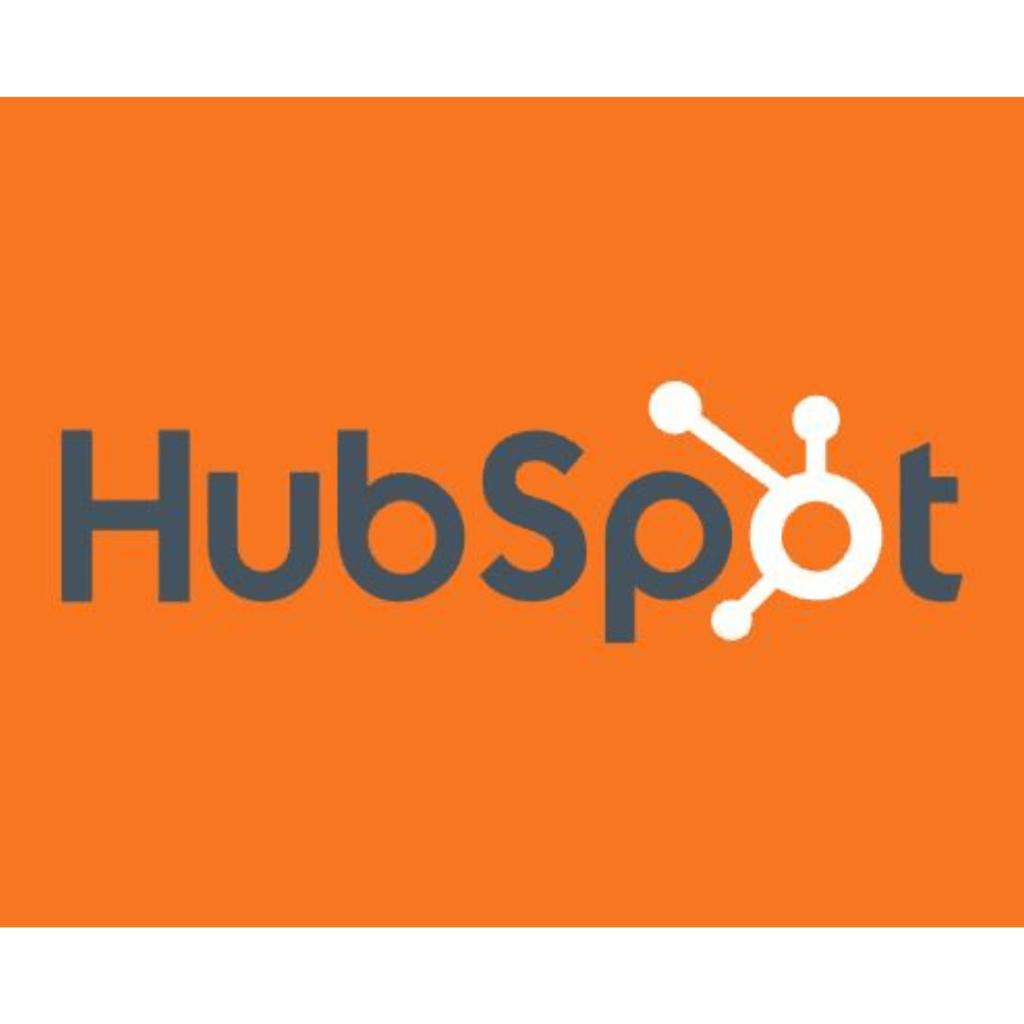
TABLE OF CONTENT
INTRODUCTION
In the intricate dance of modern business, where customer relationships reign supreme, the quest for the number 1 CRM software becomes paramount. In this blog post, we embark on a journey to unravel the significance of CRM solutions, guide you through the selection process, and provide actionable insights for implementing and maximizing the effectiveness of the chosen CRM. From understanding the pivotal role of CRM to exploring top options, case studies, user reviews, and practical tips, join us as we navigate the dynamic landscape of customer relationship management, empowering your business for success.
UNDERSTANDING THE IMPORTANCE OF CRM SOFTWARE
Maintaining strong and meaningful relationships with customers is of utmost importance for any business. This is where Customer Relationship Management (CRM) software can prove to be a game-changer. In this article, we will explore the significance of CRM software and how it can significantly impact your business’s success. As businesses strive to streamline operations and foster long-term connections with customers, searching for the best CRM software becomes crucial.
Why CRM Matters:

1. Efficient Customer Data Management:
- CRM software acts as a centralized hub for storing and managing customer data. From contact information to purchase history, having all this data in one place enables businesses to understand their customers on a deeper level.
2. Improved Customer Communication:
- CRM systems streamline communication by providing a unified platform for interactions. Whether it’s through emails, calls, or social media, businesses can track and respond to customer inquiries promptly.
3. Enhanced Sales Opportunities:
- By analyzing customer data, CRM software identifies potential leads and sales opportunities. This proactive approach helps sales teams target the right audience and tailor their strategies for maximum impact.
4. Personalized Customer Experiences:
- CRM enables businesses to create personalized experiences for their customers. By understanding preferences and behaviours, businesses can tailor their products and services to meet individual needs.
5. Efficient Task Management:
- CRM systems assist in organizing tasks and deadlines. This ensures that teams stay on top of important activities, fostering a more efficient and productive work environment.
CRITERIA FOR SELECTING THE RIGHT CRM SOFTWARE
Selecting the right CRM software is a pivotal decision for businesses aiming to enhance customer relationships and streamline operations. To help you navigate this crucial choice, consider the following key criteria when searching for the number 1 CRM software.
1. User-Friendly Interface:
- Opt for CRM software with an intuitive interface. A user-friendly design ensures quick adoption by your team, leading to increased productivity.
2. Scalability:
- Choose a CRM solution that can grow with your business. Scalability ensures the software remains effective as your customer base expands.
3. Comprehensive Features:
- Evaluate the features offered by CRM options. The number 1 CRM software should encompass essential functionalities such as contact management, lead tracking, and advanced features like automation.
4. Customization Options:
- Prioritize CRM solutions that allow customization. Tailoring the software to match your unique business processes enhances its effectiveness.
5. Mobile Accessibility:
- Ensure the CRM software is accessible on mobile devices. This feature is crucial for businesses with teams on the move, facilitating real-time updates and collaboration.
6. Integration Capabilities:
- Look for CRM software that seamlessly integrates with other tools your business uses. Integration streamlines processes and enhances overall efficiency.
7. Data Security and Compliance:
- Prioritize the security of customer data. The number 1 CRM software should adhere to industry standards and compliance regulations, ensuring the protection of sensitive information.
8. Customer Support and Training:
- Select a CRM provider that offers robust customer support and training resources. A responsive support team and comprehensive training materials contribute to successful software implementation.
9. Affordability and Transparent Pricing:
- Assess the total cost of ownership. Transparent pricing structures help you stay within budget while ensuring you receive value for your investment.
10. User Reviews and Reputation:
- Investigate user reviews and testimonials to gauge the reputation of CRM options. Positive feedback is a strong indicator of the software’s reliability.
11. Upgradability and Future Roadmap:
- Ensure the CRM software provider is committed to continuous improvement. Look for evidence of a clear product roadmap, indicating ongoing updates and enhancements.
12. Trial Period or Demo:
- Take advantage of free trials or demos offered by CRM providers. This hands-on experience allows you to assess the software’s suitability for your business before committing.
REVIEW OF TOP CRM SOFTWARE OPTIONS
Choosing the right CRM software is a pivotal decision for businesses seeking to optimize customer relationships and streamline operations. To assist you in this critical choice, let’s explore and review some of the top CRM software options in the market, each vying for the coveted title of the number 1 CRM software.
1. Salesforce:

- Overview: Renowned as a CRM giant, Salesforce offers a comprehensive suite of features, from lead tracking to advanced analytics.
- Strengths: Robust customization, extensive app marketplace, and AI-powered insights.
- Considerations: High pricing for smaller businesses, potentially overwhelming for beginners.
2. HubSpot CRM:

- Overview: HubSpot’s CRM is known for its user-friendly interface and seamless integration with marketing tools.
- Strengths: Free basic version available, intuitive navigation, and excellent customer support.
- Considerations: Advanced features may be limited in the free version.
3. Zoho CRM:

- Overview: Zoho CRM is a versatile solution suitable for businesses of all sizes, offering a range of features at competitive pricing.
- Strengths: Robust automation, AI-driven insights, and a scalable pricing model.
- Considerations: Customization may require technical expertise.
4. Microsoft Dynamics 365:

- Overview: Integrated with Microsoft’s suite of tools, Dynamics 365 offers a unified platform for sales, marketing, and customer service.
- Strengths: Seamless integration with Microsoft products, powerful analytics, and customization options.
- Considerations: Cost may be prohibitive for small businesses.
5. Monday.com:

- Overview: Known for its flexibility, Monday.com is more than a CRM, offering project management and collaboration features.
- Strengths: Visual and customizable workflows, easy collaboration, and a modern interface.
- Considerations: May lack some advanced CRM features.
CASE STUDIES OR SUCCESS STORIES
Understanding how businesses have successfully implemented the number 1 CRM software is crucial in illustrating its real-world benefits. Let’s explore some compelling case studies and success stories that showcase the transformative power of top-notch CRM solutions.
1. XYZ Corporation: Boosting Sales with Salesforce
- Overview: XYZ Corporation, a leading e-commerce entity, implemented Salesforce to streamline its sales processes.
- Results: Increased sales by 30%, improved lead conversion rates, and enhanced customer satisfaction.
2. Tech Innovators Inc.: Scaling Operations with HubSpot CRM
- Overview: Tech Innovators Inc. leveraged HubSpot CRM to centralize customer data and align marketing efforts.
- Results: Achieved a 20% increase in marketing ROI, enhanced lead nurturing, and streamlined communication.
3. Small Business Solutions: Zoho CRM Success
- Overview: A small business found success with Zoho CRM, optimizing workflows and improving customer interactions.
- Results: 50% time savings on administrative tasks, 15% increase in customer retention, and efficient lead management.
4. Enterprise Excellence: Dynamics 365 Driving Efficiency
- Overview: A large enterprise integrated Microsoft Dynamics 365 for a unified approach to sales, marketing, and customer service.
- Results: 25% improvement in cross-departmental collaboration, streamlined processes, and enhanced customer experience.
5. Creative Agency Dynamics: Monday.com Revolution
- Overview: A creative agency found success using Monday.com for project management and client collaboration.
- Results: 40% faster project delivery, improved client satisfaction, and enhanced team collaboration.
STEP-BY-STEP GUIDE ON IMPLEMENTING THE CHOSEN CRM
Implementing the chosen CRM software is a strategic move toward enhancing customer relationships and optimizing business processes. Here’s a step-by-step guide to ensure a smooth and successful implementation of your selected number 1 CRM software.
1. Needs Assessment:
- Define Objectives: Clearly outline the goals you aim to achieve with the CRM implementation. Whether it’s improving sales, streamlining communication, or enhancing customer service, a clear vision sets the foundation.
2. Team Training:
- Training Sessions: Conduct comprehensive training sessions for your team. Ensure that every user understands the basic functionalities, customization options, and how to leverage the CRM for their specific roles.
3. Data Migration:
- Assess Existing Data: Evaluate your current data and cleanse it of any inaccuracies. Ensure that the data is compatible with the CRM software. This step is crucial for a seamless transition.
4. Customization:
- Tailor to Your Needs: Leverage the customization options provided by the CRM software. Adapt the system to align with your unique business processes, ensuring maximum efficiency.
5. Integration with Existing Tools:
- Connectivity: Integrate the CRM with existing tools your business uses, such as email, marketing automation, or project management platforms. This ensures a cohesive workflow.
6. Testing Phase:
- Pilot Testing: Conduct a pilot test with a select group of users to identify any potential issues. This allows for adjustments before full-scale implementation.
7. Feedback and Refinement:
- User Feedback: Gather feedback from users during the testing phase. Address any concerns or suggestions to refine the CRM configuration for optimal usability.
8. Rollout Plan:
- Phased Implementation: Develop a phased rollout plan. Gradually introduce the CRM to different teams or departments, ensuring a smooth transition without disrupting daily operations.
9. Continuous Training:
- Ongoing Support: Provide continuous training and support as needed. This ensures that users remain confident and proficient in utilizing the CRM software.
10. Monitoring and Evaluation:
- Analytics and Metrics: Implement monitoring tools to track key performance indicators (KPIs). Regularly evaluate the impact of the CRM on your business objectives.
TIPS FOR MAXIMIZING CRM SOFTWARE EFFECTIVENESS
Successfully implementing CRM software is just the beginning; the key to reaping its full benefits lies in maximizing its effectiveness. Here are essential tips to ensure you harness the power of your chosen number 1 CRM software to its fullest potential.
1. User Adoption:
- Promote Training: Encourage comprehensive training for all users. The more proficient your team is in using the CRM, the greater the impact it will have on your business processes.
2. Data Accuracy and Maintenance:
- Regular Audits: Conduct regular audits of your CRM data. Ensure accuracy by promptly updating and cleansing information. A clean and organized database is the backbone of effective CRM usage.
3. Automation Utilization:
- Workflow Automation: Leverage automation features to streamline repetitive tasks. From lead nurturing to follow-up emails, automation enhances efficiency and reduces manual workload.
4. Integration Optimization:
- Maximize Integrations: Ensure your CRM is seamlessly integrated with other essential tools your business uses. This interconnected ecosystem boosts overall productivity.
5. Customization for Your Business:
- Tailor to Your Needs: Customize the CRM to align with your unique business processes. Adapt fields, workflows, and reports to match the specific requirements of your industry and team.
6. Regular Software Updates:
- Stay Current: Keep your CRM software updated with the latest features and security patches. Regular updates ensure you’re benefiting from advancements and improvements.
7. Proactive Data Analysis:
- Utilize Analytics Tools: Make use of built-in analytics tools to gain insights into customer behavior, sales trends, and team performance. Data-driven decisions lead to strategic business growth.
8. Mobile Accessibility Emphasis:
- Encourage Mobile Usage: Emphasize the importance of using the CRM on mobile devices. This ensures that your team can access vital information and stay connected while on the move.
9. Cross-Departmental Collaboration:
- Encourage Collaboration: Foster collaboration between departments. A CRM is most effective when it serves as a centralized hub for communication and information sharing.
10. Regular User Feedback:
- Continuous Improvement: Solicit feedback from users regularly. Understand their pain points and suggestions to continually refine and optimize CRM usage.
CONCLUSION: UNLEASHING THE POTENTIAL OF YOUR BUSINESS WITH THE NUMBER 1 CRM SOFTWARE
Remember that the true power of CRM lies not just in its features but in how effectively your team harnesses its capabilities. By prioritizing user adoption, ensuring data accuracy, embracing automation, and continuously optimizing its usage, you unlock the full potential of your CRM investment.
Whether you’ve chosen Salesforce, HubSpot CRM, Zoho CRM, Microsoft Dynamics 365, or Monday.com, each software brings its unique strengths to the table. The case studies and success stories showcased the real-world impact of these CRMs, providing a glimpse into how businesses have thrived with their implementation.
Now equipped with a step-by-step implementation guide and tips for maximizing CRM effectiveness, you’re poised for success. Remember, the journey doesn’t end with implementation; it evolves as your business grows. Regularly reassess, seek user feedback, and stay attuned to industry advancements to ensure your CRM remains a strategic asset.
Choose wisely, implement diligently, and optimize relentlessly. The right CRM software, when wielded effectively, has the potential to propel your business to new heights, solidifying its position in the competitive landscape.
Here’s to your success with the number 1 CRM software—may it be the driving force behind your business’s growth, efficiency, and lasting customer relationships. Happy CRM-ing!




Pingback: REVOLUTIONIZING A MODERN-DAY ENTREPRENEUR SUCCESS: NAVIGATING THE DIGITAL ODYSSEY